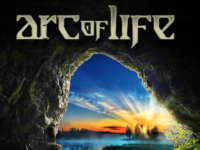Whether it was down to the writing influence of Jon Anderson or not, the final piece on 1994’s Talk turned out to be what a lot of fans and commentators believe is a proper ’90s version of a progressive epic and a lasting legacy of the Trevor Rabin era of Yes.
“Endless Dream” is clearly meant to look like a Yes epic with its multi-part structure and cosmic title. The first part, labelled “instrumental,” is called “Silent Spring” and features an elaborate, repeated keyboard pattern, most likely played or programmed by Rabin himself rather than added by Tony Kaye. Loud chords then usher the full band who blast away with a sequence which is percussive and enlivened with an odd time-signature.
This opening part is only 1:56 long, but arguably has within it more progressive-rock elements than the rest of Talk put together. There are runs on the guitar, massive contrasts, that unusual time signature and heaps of passionate, fast, loud, virtuosic playing. This is ’90s prog-rock at its absolute best, re-invented for the new decade but retaining the important features of earlier decades in a bubbling, irresistible mix.
The song segues into the next section, subtitled “Talk,” which could be described on its own as epic in length at 11:56. It starts with an immediate, direct contrast to the end of “Silent Spring.” Voice passages are interspersed with short piano interludes and the mood is quiet and peaceful with a graceful piano motif which emerges gradually. Then a more chordal passage introduces Anderson singing above some quite Rick Wakeman-esque piano work. Anderson’s line soars up into the stratosphere and you feel in your bones that something is going to happen – and it does.
Trevor Rabin and the rest of Yes erupt with a heavy motif pointing back towards the ’80s power era but because of what has gone before, it seems much more balanced, and therefore much more acceptable. In fact, it is soon replaced by a creative segment where Rabin gets to play not only with the stereo fader but also with his own guitar effects to produce a fun little side show. This then metamorphoses with the addition of fragments of vocal harmonies and creative drumming into another stadium rock guitar theme and huge Jon Anderson-led chorus, but even this is broken down quickly as a section of creative sound effects and musical snippets swirl around the listener.
We are half way through now and the complexity of this Yes track is beginning to become clear. Keyboards set up an ostinato pattern and then another complementary one as the rest of the instrumentalists begin to get more and more agitated and restless. Finally, one of the main guitar themes reappears in triumphant and spine-tingling style. This is exactly what us die-hard Yes fans had been waiting for. It’s pure order-out-of-chaos, tension-release material, recalling the best of the classic albums – definitely one of my Yes “champagne moments.”
That catchy, strong chorus comes in again with Anderson elaborating vocals above and then joining in with the others for “So, take your time.” This could easily be the chorus of a mediocre Yes song but it’s been wrapped in a gilt-edged, progressive structure. The superb production and arrangement elevate it to what we all know and love about Yes.
After this triumph, we segue into the final section, dubbed “Endless Dream.” It’s rather more of an epilogue than a new section but calmly brings the piece and the album to a close with some recapitulation of material and a bit of improvised-sounding keyboard work. Once again, I’m finding myself exhausted at the end of a Yes epic – and that’s exactly what I want to be.
For me, “Endless Dream” is the culmination of a great Yes album and one which shows that the (first?) Rabin era of the band managed to combine the quirky pop sensibilities of 90125 with the bombast of Big Generator to produce a mature, enduring work of modern, ’90s progressive rock. It remains an album I enjoy hugely and one which manages to transcend the normal restrictions of the time at which it was created, much like The Yes Album, Fragile, Close to the Edge, Relayer, Going For the One and the other classics.
- Yes, “Mystery Tour” from ‘The Quest’ (2021): YESterdays - November 23, 2021
- Yes, “Minus the Man” from ‘The Quest’ (2021): YESterdays - October 5, 2021
- Yes, “Subway Walls” from ‘Heaven and Earth’ (2014): YESterdays - December 8, 2020



